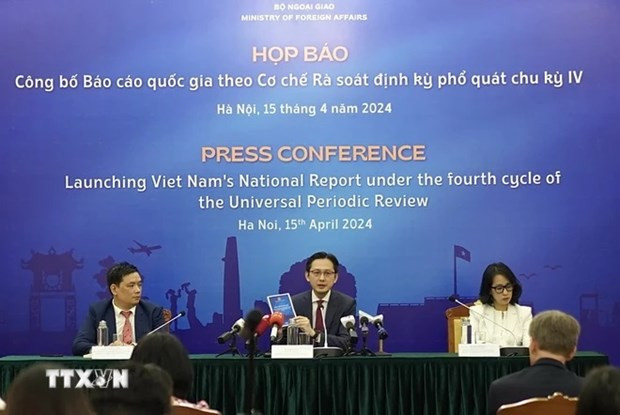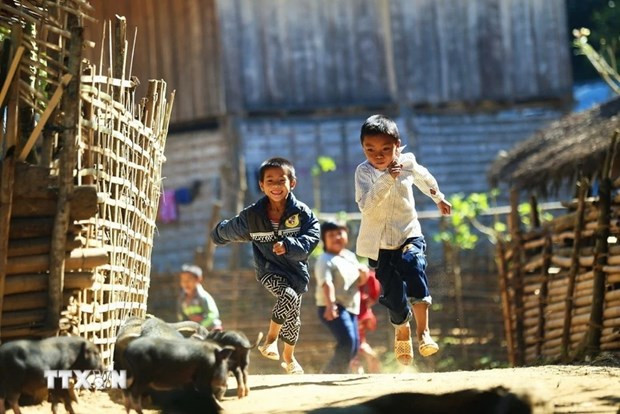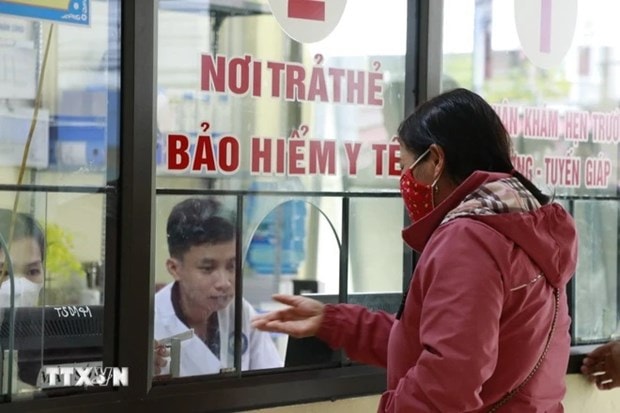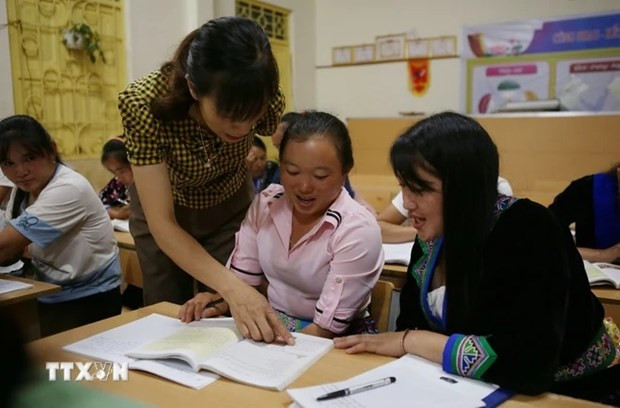Fundamental rights and freedom of the people are enshrined in the Constitution of Vietnam, protected and promoted by specific legal documents and exercised in practice.

With the view of “leaving no one behind”, the Party and the State always pay attention to improving people's living standards and their rights to enjoyment, and promoting and protecting human rights, along the cause of national development.
Vietnam’s achievements and imprints in this regard are undeniable and recognised by the international community.
Vietnam's National Report under the United Nations Human Rights Council (UNHRC)’s fourth cycle of the Universal Periodic Review (UPR), recently released by the Ministry of Foreign Affairs, depicts a bright picture of the human rights situation in the Southeast Asian nation through persuasive figures.

From 2019 to the end of November 2023, the Vietnamese National Assembly had passed 44 laws, many of them related to human rights and citizens’ rights. The provisions of the 2013 Constitution have also been concretised, ensuring their compatibility with international conventions to which Vietnam is a member.
Human rights have been included in the national curriculum, and all educational institutions are expected to offer human rights lessons to their students by 2025. Vietnam has joined seven out of the nine core international human rights treaties so far

Since 2009, Vietnam's per capita GDP has expanded by 25%, its poverty rate brought down by 1.5% annually. A nationwide network of preventive health care has been established and integrated with grassroots health care. Its health insurance coverage had risen to 92% in 2022 from over 81% in 2016. Up to 98.3% of the households have secured access to clean water, up nearly 1 percentage point compared to 2018.
After 26 years of Internet connection, Vietnam has developed a modern telecoms technology system with high accessibility. As of September 2023, the country had counted 78 million Internet users, up 21% from that in 2019. Mobile broadband subscriptions reached 86.6 million, a rise of 38%.
Currently, about 72,000 associations are operating regularly in Vietnam, actively participating in addressing important socio-economic issues of the country. This reflects that media, press, and the Internet have developed strongly and served as forums for people and social organisations to raise their voice and as tools to monitor policy and law enforcement, and protect the legitimate rights and interests of people.
These achievements have also been demonstrated through other convincing statistics regarding improved public health, even higher than that in countries sharing the same income status with Vietnam; increased average life expectancy, higher than the world average; declined infant mortality; the decreased rate of undernourished children under five; and the high rate of full immunisation for babies under one year old.

It can be said that this is a solid foundation that has helped Vietnam earn seats at UN human rights bodies and mechanisms, notably its membership in the Human Rights Council for 2023-2025.
Such persuasive statistics have made strong impressions on the international community.
UN Resident Coordinator for Vietnam Pauline Tamesis affirmed that Vietnam has made marked progress in economic development, poverty reduction, and the improvement of social indicators.
Besides these figures, the UN also appreciates the commitment and dedication of the Vietnamese people, the visionary leadership of the Government, and the solidarity of the international donor community, she said, noting that all of these factors play an important role in the country’s remarkable growth and progress.
UNDP Resident Representative Ramla Khalidi said: “Vietnam has remained a high human development country through the difficult years of the COVID-19 pandemic. Human development continues to be a focus of Vietnam's development strategy, and we have seen very sizable gains over the past decades.”
Representative of the UN Children’s Fund (UNICEF) in Vietnam Rana Flowers also spoke highly of Vietnam’s socio-economic development achievements amidst challenges and difficulties, especially in implementing priority policies related to child care and protection.
However, separate reports from UN agencies and some other countries still show a lack of objectivity, providing an inaccurate assessment of the human rights situation in Vietnam under the fourth UPR cycle.
Given this, Deputy Minister of Foreign Affairs Do Hung Viet recently said Vietnam refutes the reports that use unverified information, make subjective assessments of the human rights situation in Vietnam, and violate the fundamental principles of modern international relations.
At a regular press conference of the Ministry of Foreign Affairs on April 25, its spokeswoman Pham Thu Hang also stressed that Vietnam once again affirms its consistent policy of protecting and promoting human rights, considering human beings the centre and the driving force of the country's renewal and development process.
Fundamental rights and freedom of the people are enshrined in the Constitution of Vietnam, protected and promoted by specific legal documents and exercised in practice, she continued.
So, it can be seen that although there are acknowledgements of the undeniable impressions and convincement, there is still a poorly objective and inaccurate perception, either intentional or unintentional, of the human rights situation in Vietnam.
However, with an open and constructive spirit, Vietnam is ready to engage with the international community and relevant parties in exchanges and dialogues to unceasingly improve the quality of ensuring human rights in the country, contributing to human rights promotion globally.
In his book titled "Some theoretical and practical issues on socialism and the path towards socialism in Vietnam", Party General Secretary Nguyen Phu Trong emphasised: "We need a society in which development is truly for humans, not for exploitation and dehumanisation for the sake of profit… And we need a political system where power truly belongs to the people, is enforced by the people, and serves the people, not merely in the interest of the wealthy few”.
TB (according to VNA)